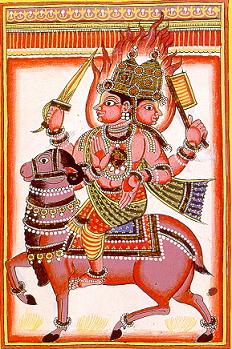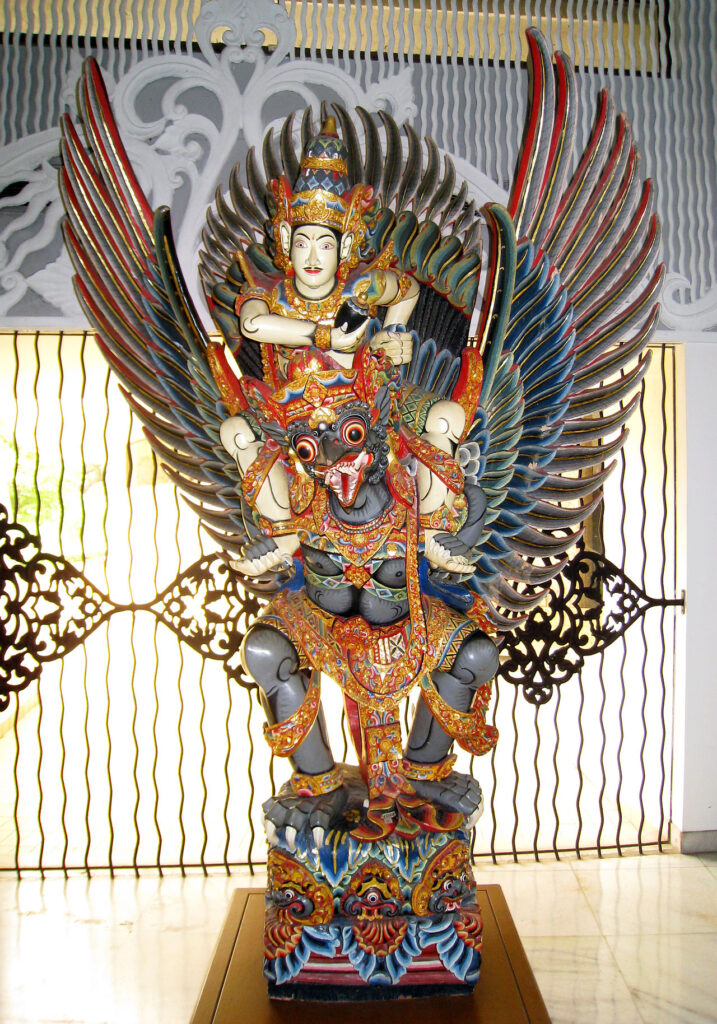
Table of Contents (The Complete Mahabharata in Simple English)
Previous Post: Astika is Asked to Save the Serpents
| Note: In the previous post, we read how Vasuki and his sister reached out to her son, Astika, to stop the snake sacrifice. In this post, we will find out what Astika does when he reaches the location of the snake sacrifice. |
After bringing peace to Vasuki’s heart with his words, Asika hastened to Janamejaya’s snake sacrifice where he saw the excellent compound in which it was being conducted. He also saw the Sadasyas who looked bright like the Sun itself.
However, when Astika tried to enter the compound, the guards stopped him as commanded by the king. Astika, who was determined to meet the king, gratified the guards and convinced them to allow him to enter the location of the sacrifice.
Once Astika entered the sacrificial compound, he spoke words of adoration to Janamejaya, the Ritwiks, Sadasyas, and the sacrificial fire.
Astika said, “In ancient times, Soma, Varuna, and Prajapati performed sacrifices in Prayaga. But your snake sacrifice, O best king of Bharata’s race, is as good as those ancient sacrifices. O king, let those who are dear to us be blessed.
Indra performed a hundred sacrifices, but this sacrifice of yours, O son of Parikshit, is equal to ten thousand sacrifices of Indra. O king, let those who are dear to us be blessed.
Your sacrifice is like the sacrifices performed by Yama, or Harimedha, or Rantideva. O king, let those who are dear to us be blessed.
When King Yudhishthira, the son of a Deva and also of the Ajamida race, conducted a sacrifice, it became known even in the heavens. Your sacrifice is like King Yudhishthira’s sacrifice. O son of Parikshit, let those who are dear to us be blessed.
Your sacrifice is akin to the sacrifice of Krishna-Dwaipayana (Ved Vyasa of the Mahabharata) where he himself was the chief priest. O son of Parikshit, let those who are dear to us be blessed.
These Ritwiks and Sadasyas who are engaged in this sacrifice are like the slayer of Vritra (Indra). They are as bright as the Sun and all-knowing. Gifts made to them become inexhaustible in merit. Your Ritwika Dwaipayana is unequalled in this world. His disciples too are competent in their duties as Ritwiks And travel throughout the world to perform sacrifices.
Agni, also known as Vibhavasu and Chitrabhanu accepts the libations of this sacrifice. He has gold as his vital seed, his path is marked by black smoke, and his flames blaze slightly to the right. He takes the libations offered by you and delivers them to the Gods. O king, there is no other monarch on earth comparable to you in the protection of his subjects.
O king, I am very pleased with your abstinence. You are either Varuna, or Yama, the God of justice. You are like Indra, who wields the thunderbolt to protect all creatures. That is no man on earth comparable to you and no king who is your equal in sacrifice. You are like Khatwanga, Nabhanga, and Dilipa. In prowess, you are like Yayati and Mandhatri. You are bright like the Sun. In your vows, you are like Bhishma. You keep your great energy concealed like Valmiki and you have controlled your anger like Vashishtha. You are like Indra in lordship and splendorous like Vishnu. You have deep knowledge of justice like Yama does and you have every virtue like Krishna. The good fortune that belongs to the Vasus has its home in you. You are the refuge of sacrifices. You have the strength of Damvodbhava and you are knowledgeable of the scriptures and weapons like Parshuram. Your energy is as great as Aurva and Trita and your fierce look is akin to Bhagiratha.
| Note: In this post, we read how Astika praised and adored King Janamejaya, the Ritwiks, and Sadasyas, and the sacrificial fire (Agni). In the next post, we will find out how Janamejaya responds to Astika’s words. |
Table of Contents (The Complete Mahabharata in Simple English)
Next Post: Janamejaya Wants to Give Astika a Boon But the Hotri Wants Him to Wait


